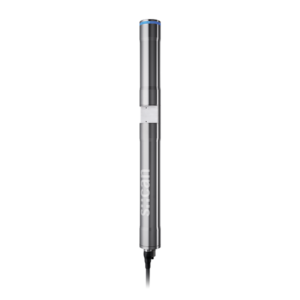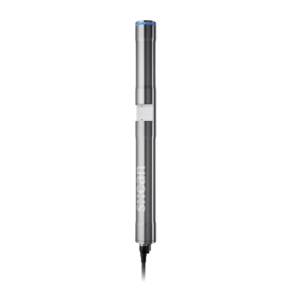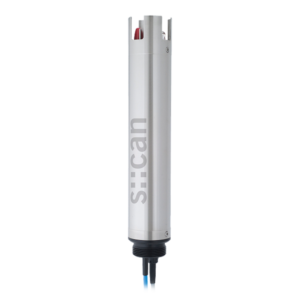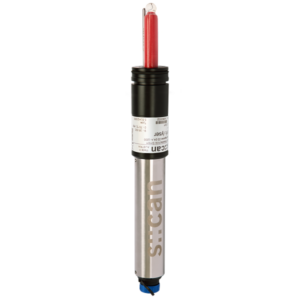- Leak Detection & Prevention: Uses flow data analysis to identify abnormal usage patterns, enabling rapid leak repair, saving water, and reducing customer complaints.
- Distribution Network Monitoring: Provides insights into water movement, pressure, and quality across the network for optimized operations and regulatory compliance.
- Water Quality Monitoring: Integrates with sensors (e.g., Pipe::scan, Metronet) to deliver real-time, near-lab-quality measurements of parameters like pH, turbidity, and chlorine.
- Customer Engagement: Supports platforms like EyeOnWater, offering daily consumption charts, leak alerts, and user empowerment for better water management.
- Operational Efficiency: Centralizes data for informed decision-making, reduces manual meter reading, and helps utilities manage infrastructure effectively.
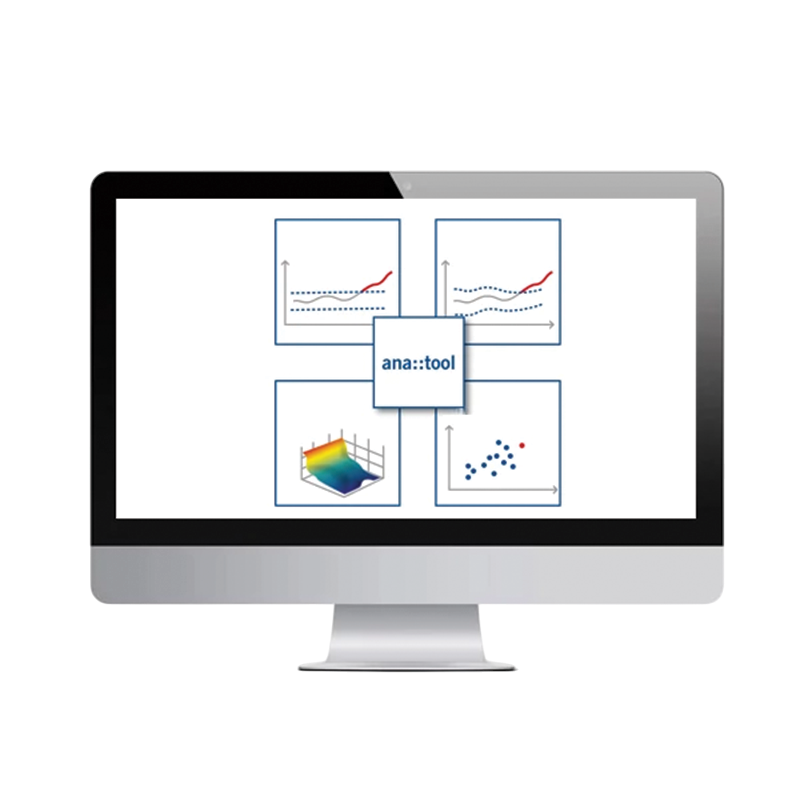
ana::tool
ana::tool identifies unknown and unusual conditions and enables operators to react in a timely manner to faults in the monitored system, determines the normality of this data, and triggers an alarm when a significant deviation from the norm is detected
Start
- ana::tool is installed with application-specific default settings
- ana::tool requires training before it can generate alarms
- ana::tool automatically starts collecting data and indicates when it is ready for training.
Training
- ana::tool can train itself continuously or be trained manually
- Manual training can be easily performed via the graphical user interface of moni::tool
- For manual training, a static time window is used
- For automatic training, a moving time window can be used
- Events are automatically detected and can be removed, the remaining data represents the “normal state”
- ana::tool weights individual parameters and creates thresholds for alarms that optimize sensitivity and minimize false alarm rate Adaptation to slow changes
- ana::tool detects events as well as gradual changes (such as seasonal changes)
- Historical data is collected and patterns of different water compositions can be stored. ana::tool recognizes water whose composition matches these patterns and sensitivity is not affected by changes between known compositions.
- With automatic training with a moving time window, the system automatically adapts to slow changes in the water matrix. During periods when the water composition changes continuously, the sensitivity of the alarm system is reduced. The actual sensitivity is displayed.
Output
- ana::tool generates a single binary alarm value
- The value indicates how far the current water composition deviates from normality
- Additional single alarms can be defined, e.g. a static limit value for a parameter
- ana::tool requires user confirmation for communicated events
- The alarm value can be used to trigger various actions and reactions
Unique functions
- Open interface to all types of sensors and measuring devices also from other manufacturers. Other data sources can also be used.
- Online and real-time validation of data before event detection significantly reduces the false alarm rate.
- The graphical user interface provides an overview of the entire station at a glance
- Web-based interface allows access at any time from any location
- Designed to take advantage of the extensive capabilities of spectral data
- Includes an indicator of actual alarm sensitivity
- Can calculate the contribution of individual water sources A, B, C, … to the total water mix
- Real-Time Anomaly Detection: Continuously monitors data, identifies unusual conditions, and triggers alarms for significant deviations.
- Open & Compatible Interface: Works with a wide range of sensors and measuring devices, including s::can spectro::lyser V3 and con::line terminals.
- Graphical & Web-Based Access: Provides intuitive dashboards and overviews of monitoring stations for easy operation.
- Data Validation: Validates incoming measurements in real-time to reduce false alarms.
- Adaptive Learning: Automatically adjusts to gradual changes in water composition using a moving time window for training.
- Adjustable Alarm Sensitivity: Offers sensitivity indicators and dynamic adjustments to prevent excessive or unnecessary alarms.

